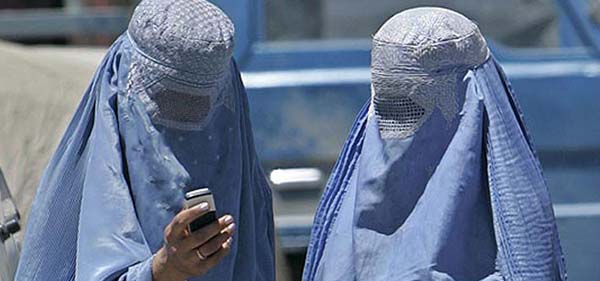The international community said the fall of the Taliban in 2001 would bring in a new era of rights. Afghanistan’s women and girls would be returned to schools and workplaces and freed from the infamously fierce restrictions on their lives. It was a key political justification used by the British and Americans for their continued presence. That year US secretary of state Colin Powell declared that restoring women’s human rights would “not be negotiable”. Tony Blair promised: “The conflict will not be the end. We will not walk away, as the outside world has done so many times before.” Now, with the withdrawal of international forces and their caravan of international agencies, there is evidence that Afghan women have seen very few of the promised changes and are terrified of the future.
Millions of dollars were invested by foreign countries for empowering women in social, political, educational and cultural arenas. In the wake of the Taliban’s downfall, thousands of girls flocked to schools and social barriers were lifted. Women were entitled to be presidential candidates and a considerable number of women were elected as members of parliament. Despite all these rapid and tangible changes, Afghan women continue to suffer in some ways.
A report by Global Rights estimates that almost 90 percent of women experience physical, sexual or psychological abuse or forced marriage. Overwhelmingly, it is their families who are committing these crimes. In the majority of cases the abuse is committed by the people they love and trust the most - their families.
While shelters are trying to provide protection and legal help to some, many women return to abusive homes because there is no alternative. Unable to escape their circumstances, some are turning to drastic measures like self-immolation to end their suffering.
Mariam was seven months pregnant the last time her husband almost killed her. She does not remember what triggered the attack. What she remembers is being slammed to the floor, and her husband’s foot crushing her neck. Mariam, which is not her real name, has been hiding in a secret women’s shelter in Kabul for the past two months. She lives with around 20 women who have travelled here from across Afghanistan, each with their own horrific story of abuse.
Some have left violent husbands. Others have been raped or are fleeing forced marriages arranged by their parents. All of them are terrified that they will be killed by their families.
The current solar year of Afghanistan began with the horrific death of Farkhunda – a 27-year-old woman who was lynched by frenzied mob near a shrine in Kabul for the false claim of burning holy Koran. Her death led to massive protests across the country, 26 arrests and renewed calls for authorities to ensure that women are protected from violence in Afghanistan. Four of the perpetrators have been sentenced to death in primary court, but 18 were exonerated for having no documents available against them.
But recently, an Afghan appeal court has quashed death sentences imposed on four men for their part in the mob killing of Farkhunda.
The court also acquitted the keeper of the shrine. Family members and rights activists have expressed outrage at the decision, which was taken in secret. Judge Ali Masir Murid has said that three of the condemned men had been sentenced to 20 years in jail; a fourth received 10 years because he is a minor.
The way the appeal was heard, in a closed court, with no journalists or other observers present, is only one of the troubling aspects of this decision. Exact details of the ruling have not yet been formally announced, but this does appear to be the final appeal hearing.
Prominent women’s rights activist Wazhma Frogh said that if the keeper of the shrine does now walk free, then she is “completely outraged”.
“Farkhunda was killed because she was a woman,” she said. And the judges have treated her case lightly. In Afghanistan, “not only the Taliban, but the whole system is oppressing women”, she added.
Since the death of Farkhunda Malikzada, life has come to a standstill for those she left behind, said her father, 72-year-old Mohammad Nader Malikzada. “We cannot live a normal life, our children cannot go to school or college, we can’t even go shopping. Most of us are mentally ill; we are under such psychological pressure. It is hell in this house,” he said.
Fearing violence, kidnapping, or retribution from police or members of the mob who have been released, they rarely leave the house.
“What will happen if the children cannot go to school? Will they be illiterate?” Najibullah, Farkhunda’s 37-year-old brother, is cited to say.
In the days after Farkhunda’s murder, family members met with First Lady Rula Ghani, who said the “horrible, barbaric tragedy” had highlighted how violent Afghan society has become after more than 30 years of war.
War-torn Afghanistan is ranked as one of the most dangerous places in the world to be born a woman, according to a survey by the Thompson Reuters Foundation.
Under the Taliban women were banned from going to school and working. They were not allowed to leave their homes without a male relative or be seen in public without a burqa.
For defying the regime’s repressive laws, women were openly flogged and executed. But 13 years after the fall of the Taliban, and despite the influx of billions of dollars in development aid, many Afghan women are still living in terror.

